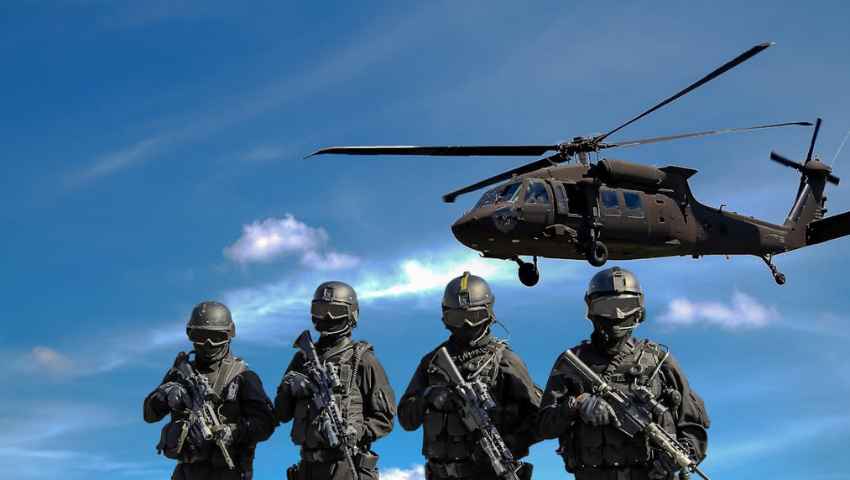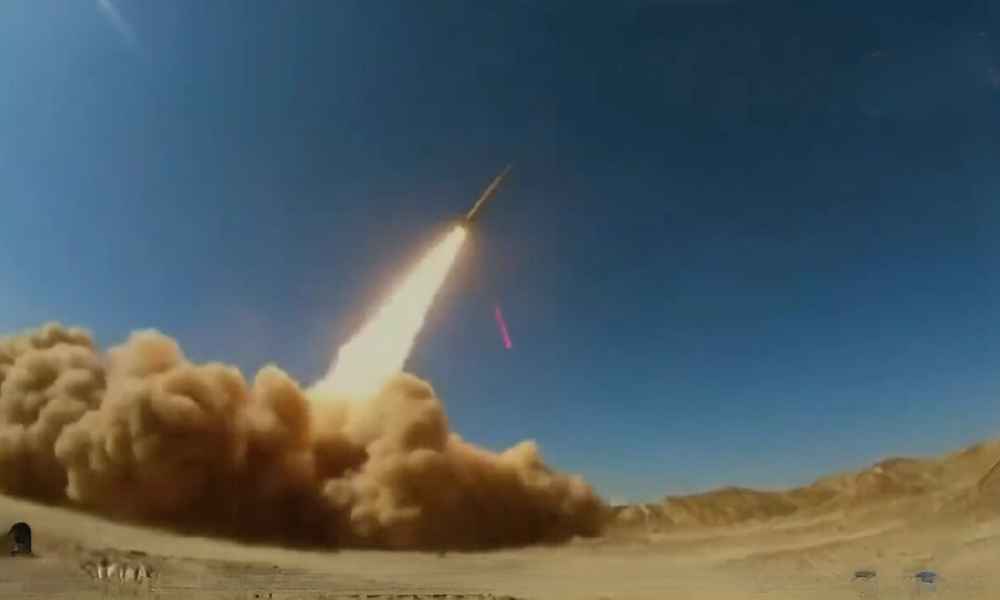Why is Iran at war with Israel? Many reasons exist for this conflict. Keep reading till the end of this article to know more about it.
Iran attacked Israel in retaliation for Israel’s strike on an April 1 Iranian consulate in Damascus, Syria. Seven Iranian officers were killed in the Israeli attack. Iran’s Revolutionary Guard called it a punitive strike against Israel. Israel and Iran have been enemies for a long time, fighting a hidden war for many years. This has increased tensions between Israel and Iran.
Iran supports forces in Iraq and Syria that have attacked US military positions. Iran’s leaders say these attacks will continue until Israel’s war in Gaza ends.
Background of the Conflict
Iran and Israel’s relationship can be divided into four main phases:
- From 1947 to 1953, there was uncertainty.
- During the Pahlavi dynasty from 1953 to 1979, relations were friendly.
- After the Iranian Revolution from 1979 to 1990, relations worsened.
- Since the end of the Gulf War in 1991, there has been open hostility.
In 1947, Iran opposed the UN Partition Plan for Palestine and also voted against Israel’s admission to the UN in 1949. After the 1953 coup, Iran’s relations with Israel improved. However, after the Islamic Revolution in 1979, Iran cut all ties with Israel and did not acknowledge its existence as a state.
Also, Israel sees Iran as a serious threat because of several reasons:
- Iran’s leaders often express hostile intentions towards Israel.
- Iran supports groups like Hamas and Hezbollah, which are enemies of Israel.
- Iran provides funding and weapons to these groups, it is increasing the threat for Israel.
Recent Incident Leading to the Conflict
Since the attacks on Israel started on October 7, Iran has supported Hamas and its broader regional goals. Israel has escalated its military operations targeting Iran and its regional partners. Hamas killed about 1,200 people, and 200 people were taken hostage.
The conflict between Israel and Gaza has resulted in a large number of casualties. According to the Ministry of Health in Gaza, over 32,800 people were killed in Gazza. This has led to extensive damage and pushed more than 1 million people to the brink of starvation. This is one of the reasons for the Israel and Iran war.
Also, Israel’s recent attack in Damascus represents a significant escalation in its ongoing conflict. Also, this has sparked protests in Tehran, where people expressed anger by burning flags of Israel and the United States.
Details of the Attack
According to the Israel Defense Forces (IDF) spokesperson Daniel Hagari, more than 300 projectiles were launched towards Israel in the overnight attack. This included around 170 drones and over 120 ballistic missiles. Additionally, approximately 350 rockets were fired from Iran, Iraq, Yemen, and Lebanon’s Hezbollah.
However, The Israeli military reported that they intercepted “99%” of the projectiles launched during the attack, including those from Iran, Iraq, Yemen, and Lebanon’s Hezbollah. Also, they said, only a small number managed to reach Israeli territory. An Iranian army official stated that Tehran’s attack targeted the Nevatim airbase. Iran alleged it was the launch site for the attack on the Iranian consulate in early April.
Military Capabilities and Alliances

Israel spends more on defence than Iran. Israel’s budget is $24.2 billion, while Iran’s is $9.9 billion. Israel focuses on technological advancements, investing in fighter jets, missile defence systems like the Iron Dome, and cyber warfare capabilities. Their military strategy emphasizes quick, intense operations and maintaining technological superiority.
Iran compensates for its older equipment by having larger force sizes. They prioritize missile technology, including ballistic missiles capable of targeting regions nearby. Iran also uses asymmetric warfare tactics, such as employing proxy forces in the Middle East. They focus on expanding their capabilities in drones and cyber warfare.
Despite Iran having a lower defence budget, it has more active troops than Israel. Iran has 575,000 active soldiers, while Israel has 173,000. In terms of air power, Israel has 612 planes, while Iran has 551. Regarding tanks, Iran has almost twice as many as Israel, with 4,071 compared to Israel’s 2,200.
According to the report by the Kuala Lumpur Indian agency, Iran has more warships than Israel, 101 compared to Israel’s 67. Israel has 43,407 armoured vehicles, while Iran has 65,765. However, the report also noted that Israel may have an advantage in a potential conflict. Because it possesses 80 nuclear bombs, but Iran officially claims they do not have nuclear bombs.
Here is a summary of the Military Capabilities between the two nations.
| Israel | Iran | |
| Active Soldiers | 173,000 | 575,000 |
| Planes | 612 | 551 |
| Tanks | 2,200 | 4,071 |
| Warships | 67 | 101 |
| Armoured Vehicles | 43,407 | 65,765 |
Nuclear Concerns and International Response
Defense Minister Israel Yoav Gallant said they had thwarted the attack in an unmatched way but emphasized the need to be prepared for any scenario. Prime Minister Benjamin Netanyahu stated they intercepted and contained the attacks, affirming their determination to prevail. Also, Israel Defense Forces said they are concerned about Iran’s alleged pursuit of nuclear weapons.
However, Western allies urged Israel to de-escalate the situation rather than escalate it further. US President Joe Biden assured Netanyahu that the US would not engage in offensive operations against Iran. He considered the events a victory for Israel, showing its remarkable defence capabilities.
Following a virtual meeting, G7 leaders condemned the Iranian attack, warning of the risk of regional escalation. They insisted that Iran and its allies stop their assaults. And also pledged readiness to take further measures to address destabilizing actions.
“Risks provoking an uncontrollable regional escalation.”
“We demand that Iran and its proxies cease their attacks, and we stand ready to take further measures now and in response to further destabilizing initiatives,” they said.
What Happens in the Future?
The decisions made by Israel’s War Cabinet will determine the next steps. Benny Gantz, an Israeli politician and retired army general, stated that Israel will respond to Iran in a manner and time of its choosing. Finance Minister of Israel Bezalel Smotrich urged a response that would resonate throughout the Middle East. However, National Security Minister Itamar Ben Gvir suggested Israel should act decisively at the moment.
Despite hours of deliberation, the War Cabinet has not yet decided how to respond. They are determined to retaliate but are undecided on the timing and scale of their response. One key consideration is how quickly Israel should react. The Israeli military has been tasked with providing additional response options.
However, Iran has warned of a more substantial assault on Israel if it retaliates. Hossein Salami, Commander of the Islamic Revolutionary Guard Corps (IRGC), stated that Iran has decided on a new approach, promising retaliation against any attacks on its interests, assets, or citizens by Israel.
Conclusion
The conflict between Iran and Israel has escalated due to the recent Iran attack on Israel in retaliation for Israel’s strike on an April 1 Iranian consulate in Damascus. Tensions between the two nations have a long history, marked by political, military, and ideological differences. The international community, particularly Western allies, has called for de-escalation to prevent further violence and regional instability. The decisions made by Israel’s War Cabinet and Iran’s response will shape the future dynamics of this ongoing conflict.










